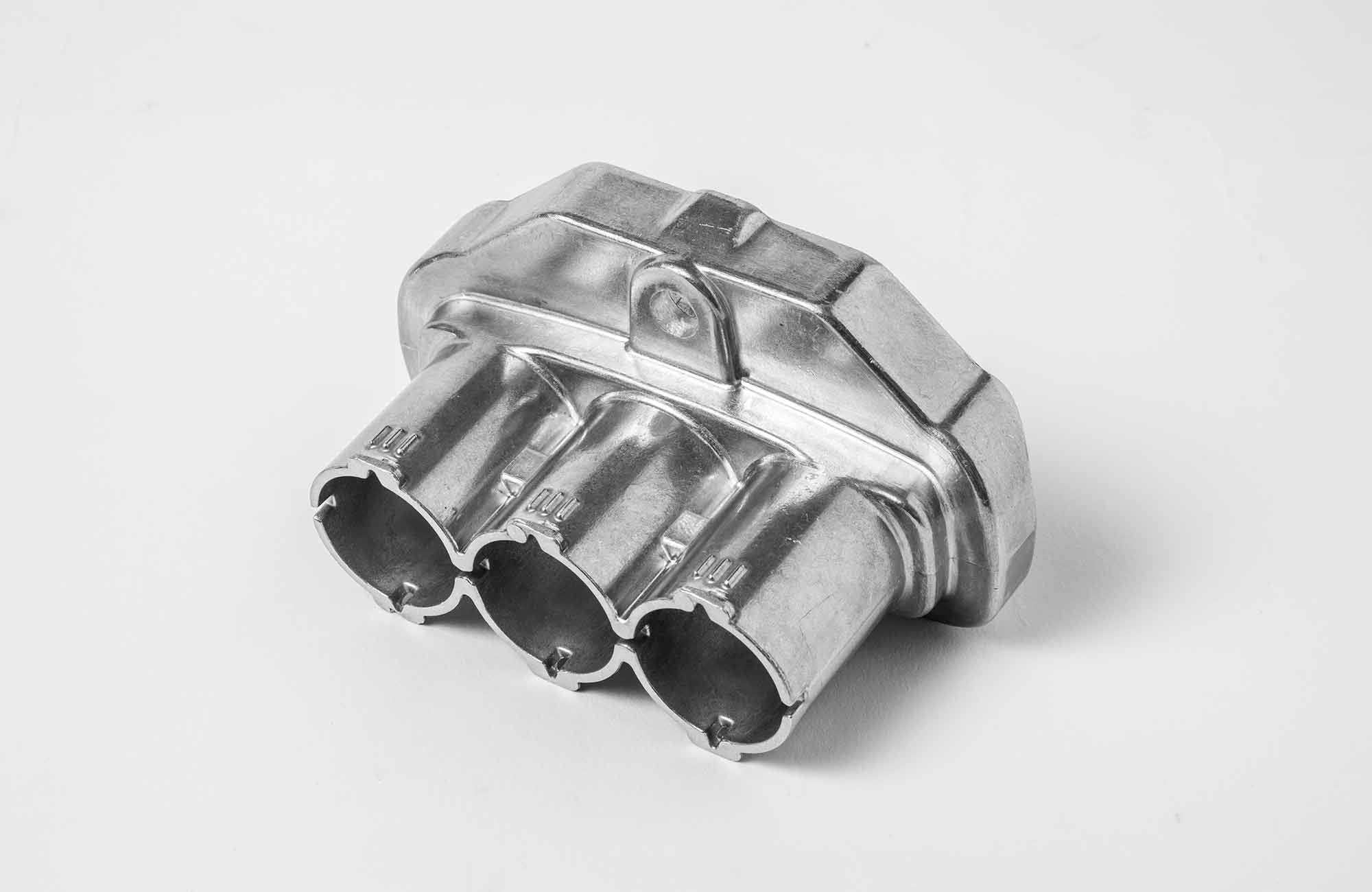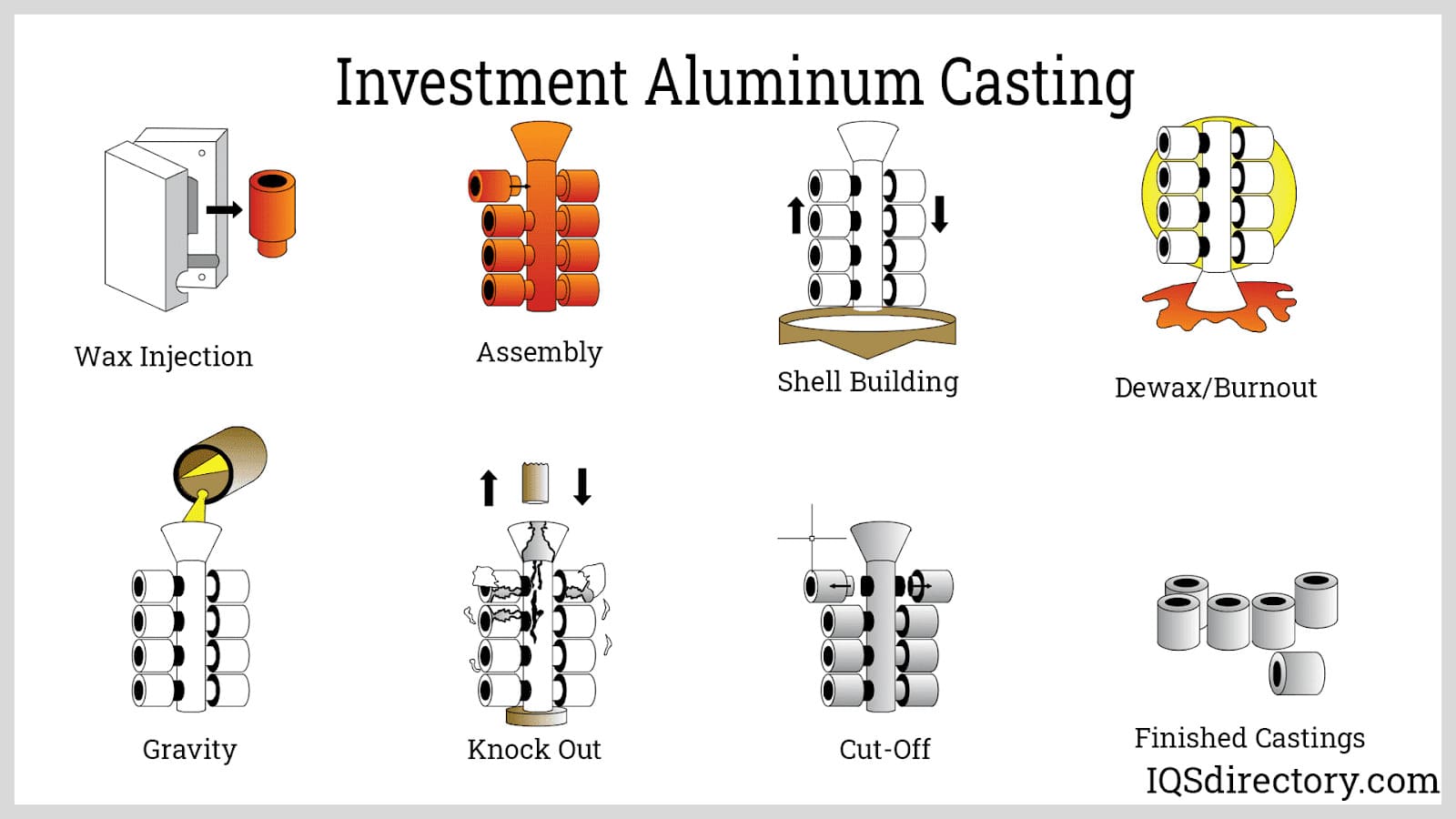Alcast Company Things To Know Before You Get This
Alcast Company Things To Know Before You Get This
Blog Article
All about Alcast Company
Table of ContentsThe Alcast Company PDFsAlcast Company Things To Know Before You Get ThisThe Alcast Company PDFsA Biased View of Alcast CompanyA Biased View of Alcast CompanyA Biased View of Alcast Company
Chemical Comparison of Cast Light weight aluminum Alloys Silicon advertises castability by reducing the alloy's melting temperature and boosting fluidness throughout spreading. Furthermore, silicon adds to the alloy's toughness and put on resistance, making it important in applications where longevity is crucial, such as auto parts and engine components.It also enhances the machinability of the alloy, making it less complicated to refine into completed items. In this way, iron adds to the general workability of aluminum alloys.
Manganese contributes to the strength of light weight aluminum alloys and improves workability. Magnesium is a light-weight element that gives toughness and effect resistance to aluminum alloys.
10 Easy Facts About Alcast Company Shown
Zinc boosts the castability of light weight aluminum alloys and helps manage the solidification procedure during spreading. It improves the alloy's strength and hardness.

The primary thermal conductivity, tensile stamina, yield stamina, and elongation vary. Amongst the above alloys, A356 has the highest thermal conductivity, and A380 and ADC12 have the least expensive.
Some Ideas on Alcast Company You Need To Know

In accuracy casting, 6063 is fit for applications where detailed geometries and top quality surface area finishes are critical. Instances consist of telecommunication rooms, where the alloy's superior formability permits smooth and aesthetically pleasing styles while keeping structural integrity. Similarly, in the Lighting Solutions market, precision-cast 6063 elements develop stylish and reliable lighting fixtures that call for elaborate forms and excellent thermal performance.
The A360 exhibits exceptional elongation, making it optimal for complicated and thin-walled parts. In accuracy casting applications, A360 is fit for industries such as Customer Electronic Devices, Telecommunication, and Power Devices.
Our Alcast Company Ideas
Its special buildings make A360 a beneficial selection for accuracy casting in these industries, improving product toughness and top quality. Aluminum alloy 380, or A380, is a widely used casting alloy with a number of distinct attributes. It uses exceptional castability, making it a perfect choice for accuracy spreading. A380 shows great fluidness when molten, making certain intricate and detailed mold and mildews are accurately reproduced.
In accuracy spreading, light weight aluminum 413 beams in the Customer Electronics and Power Equipment sectors. This alloy's exceptional deterioration resistance makes it an exceptional selection for outside applications, ensuring long-lasting, durable products in the pointed out industries.
More About Alcast Company
Once you have actually decided that the aluminum pass away casting process appropriates for your job, an important next step is selecting the most proper alloy. The aluminum alloy you select will substantially impact both the spreading procedure and the properties of the end product. Due to this, you need to make your decision very carefully and take an enlightened approach.
Determining the most suitable light weight aluminum alloy for your application will certainly suggest evaluating a broad selection of attributes. These comparative alloy features comply with the North American Die Casting Association's standards, and we've split them right into 2 groups. The very first category addresses alloy qualities that influence the production procedure. The 2nd covers qualities impacting the residential or commercial properties of the last product.
Fascination About Alcast Company
The alloy you pick for die spreading straight impacts a number of aspects of the spreading process, like exactly how easy the alloy is to function with and if it is susceptible to casting defects. Hot breaking, likewise called solidification fracturing, is a common die casting issue for light weight aluminum alloys that can result in interior or surface-level tears or splits.
Particular aluminum alloys are much more prone to warm breaking than others, and informative post your selection needs to consider this. It can damage both the actors and the die, so you must look for alloys with high anti-soldering properties.
Corrosion resistance, which is already a noteworthy feature of aluminum, can vary significantly from alloy to alloy and is a vital characteristic to take into consideration depending upon the ecological conditions your item will certainly be revealed to (Foundry). Wear resistance is one more residential property typically looked for in light weight aluminum items and can separate some alloys
Report this page